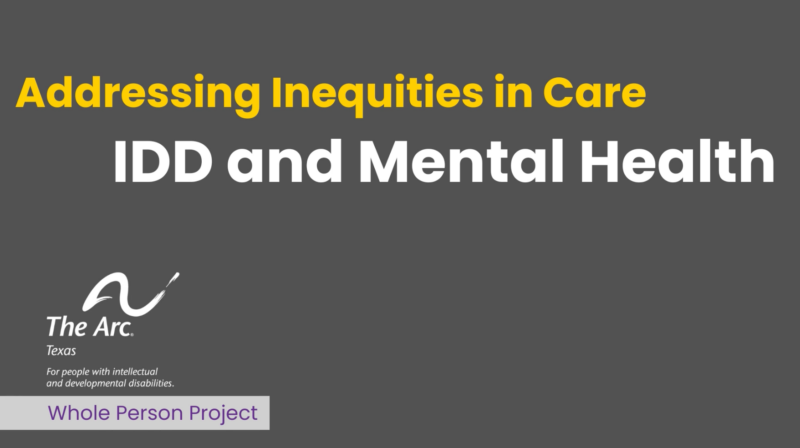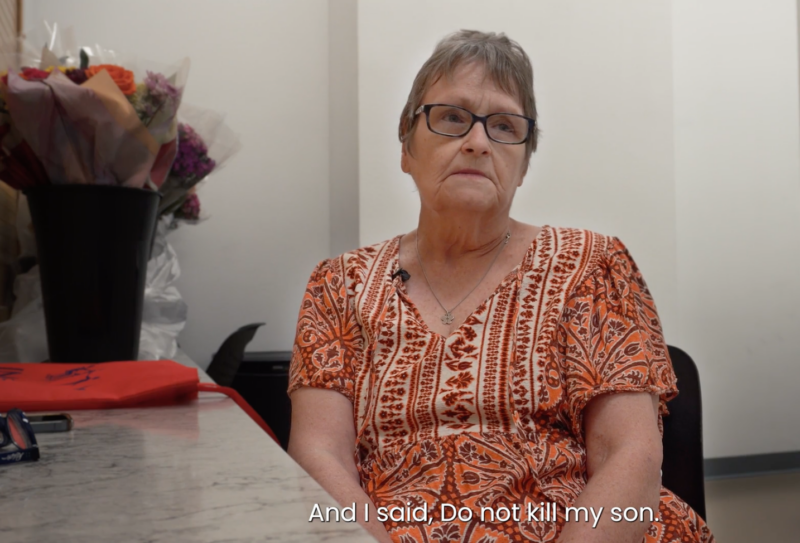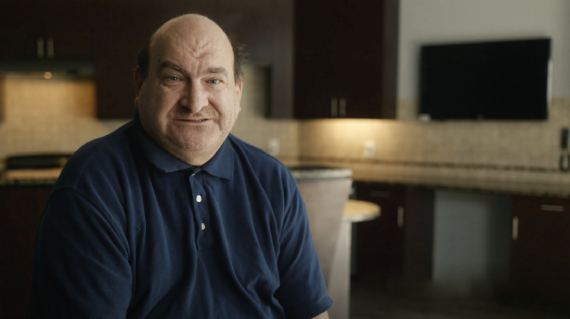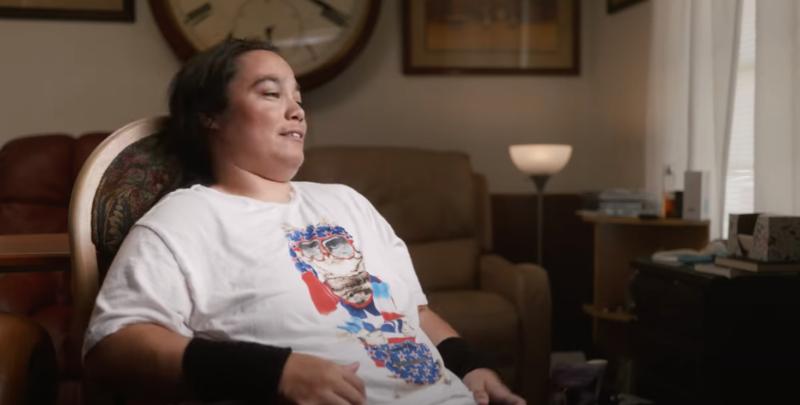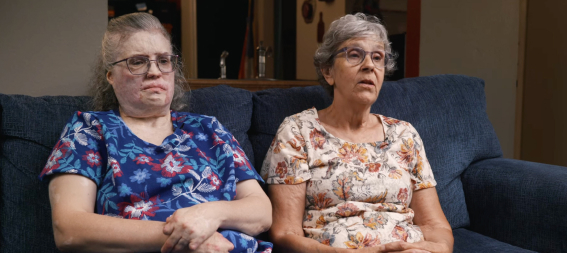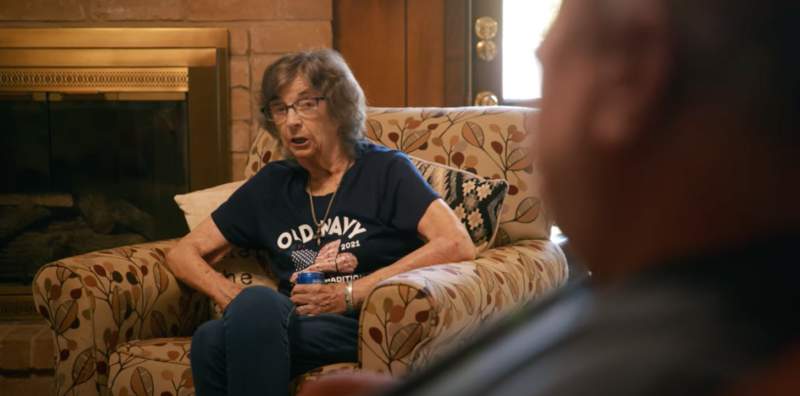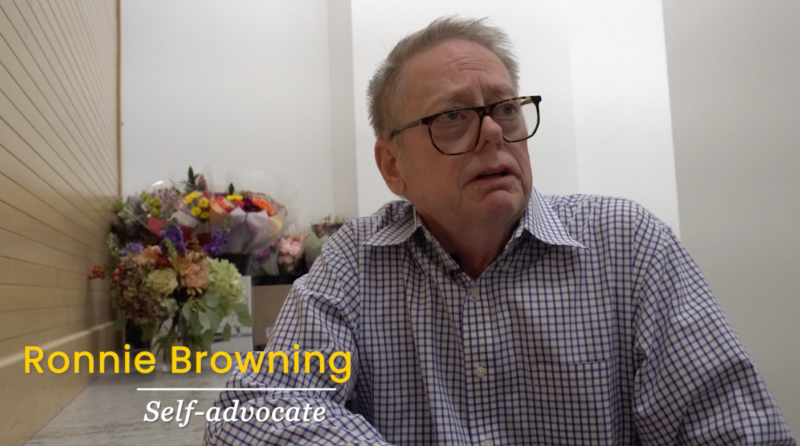The Whole Person Project
The Whole Person Project seeks to expand access to quality mental health services for adult Texans with intellectual and developmental disabilities (IDD).

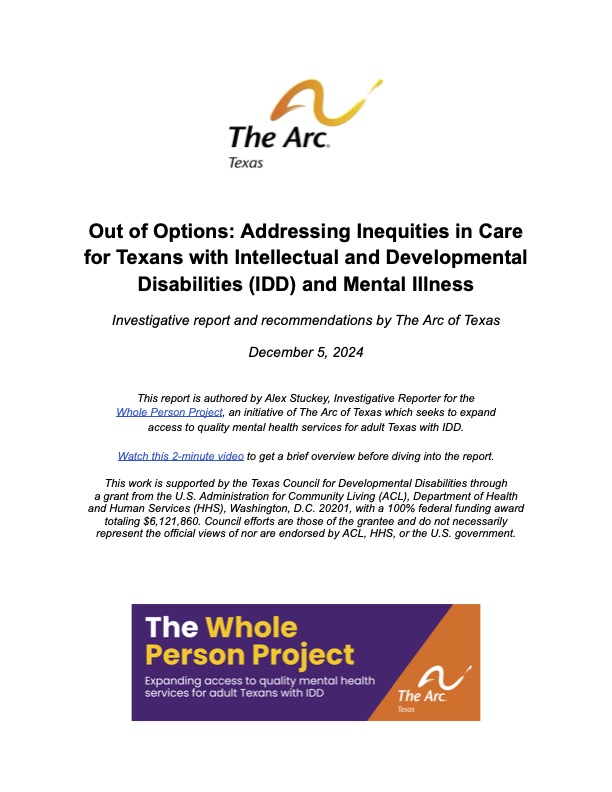
Investigative Report and Recommendations
The Arc of Texas is uniquely positioned to help identify and address mental health care disparities experienced by Texans with IDD. Following months of research and conversations with people living and working at the intersection of this co-occurrence, we invite you to read our in-depth, investigative report, “Out of Options: Addressing Inequities in Care for Texans with IDD and Mental Illness.” The report, authored by Pulitzer Prize investigative journalist Alex Stuckey, includes our proposed recommendations.
We invite media to view the press release here.
Watch: Key Findings Webinar Recording
In case you missed it, you can watch a 45-minute recording of the March 19, 2025, webinar, “Out of Options: Addressing Inequities in Care for Texans with Intellectual and Developmental Disabilities (IDD) and Mental Illness,” where we discussed key findings and recommendations from our investigative report.
Watch: About The Whole Person Project
Watch this 2-minute video to hear about three families who have an adult child with co-occurring IDD and mental disorders, how they’ve been failed by state systems ill-equipped to handle the dual diagnoses, and how we seek to address these inequities.
Learn: On-Demand Course for Mental Health Providers Working with People with IDD
In this self-paced, 60-minute onboarding course, “Breaking Barriers: Supporting Texans with Intellectual and Developmental Disabilities and Mental Health Conditions” learners get an understanding of disability frameworks, dual diagnosis, legal requirements, and communications strategies. While the course is intended primarily for mental health providers, it is available to anyone interested in the intersection of mental health and IDD.
Report Highlights
- More than 176,000 people are waiting for care through Medicaid waiver programs—which can help keep individuals with IDD in their communities versus in an institution — a 73 percent increase since 2015. Some people wait nearly 20 years to reach the top of the list.
-
Personal care attendants — who help disabled individuals with everyday tasks such as bathing, dressing, and toileting — make an average of $10.60/hour in Texas. This ranks the state 50th out of the 50 states and Washington, D.C., in average hourly wage. Louisiana is the only state with lower pay.
-
About 8.6 million Texans have no alternatives to restoring their competency beyond sitting in a jail cell waiting for a state psychiatric bed — a wait that can stretch on for months.
-
Texans in at least 62 of the state’s 254 counties have access to jail diversion centers, which connect individuals with IDD and/or mental illness with care instead of sending them to jail.
-
Nearly 2,000 people are waiting for a bed in a state-funded psychiatric hospital — most of them from a jail cell — a 500 percent increase since 2015.
-
Texas does not require training for county jailers on how to handle individuals with IDD.
-
At least ten privately funded psychiatric hospitals in Texas have an IQ cutoff of around 70, meaning individuals with IDD are often barred from entrance.
-
Only two of the 18 Texas colleges and universities with Masters and/or Doctoral Psychology programs with a clinical component surveyed by The Arc of Texas offer IDD training beyond assessment and diagnostic services.
- Click here for the full report and our recommendations.
Other Project Activity
- Earlier in this project, we worked with the Center for START Services (CSS) to conduct a provider systems analysis in Texas. The results from the study indicated a need for increased access to mental health/IDD cross-training, information sharing, and collaboration throughout the health service delivery system. We also interviewed self-advocates about their experience at the intersection of mental health and IDD.
The Dooleys’ Story
Michelle describes the search for care for her 39-year-old son Morgan, who has Landau-Kleffner syndrome, a Fifth Chromosome disorder, and Bipolar disorder. Morgan’s six-month stint in a state hospital left him worse off than before, adding Post-Traumatic syndrome to the symptoms his psychiatrist tries to help manage, but she admits, “I haven’t been trained to work with people like this.” Michelle says despite the continued search for appropriate care, “[Morgan] is a tribute community can work if we could just get the money out there.”
A Single Twig Breaks, But a Bundle is Strong
When Judith Laufer of the San Antonio League of Self-Advocates met Pat Carnal and Suzie Breckons, she wanted to help them live their lives and honor their self determination. Individually, there were limited resources – but by pooling them, the results have been remarkable!
This project is supported by the Texas Council for Developmental Disabilities (TCDD) through a grant from the U.S. Administration for Community Living (ACL), Department of Health and Human Services, Washington, D.C., 20201. Grant number available by request. Grantees receiving government sponsorship are encouraged to express their findings and conclusions. Opinions do not necessarily represent official TCDD or ACL policy.
